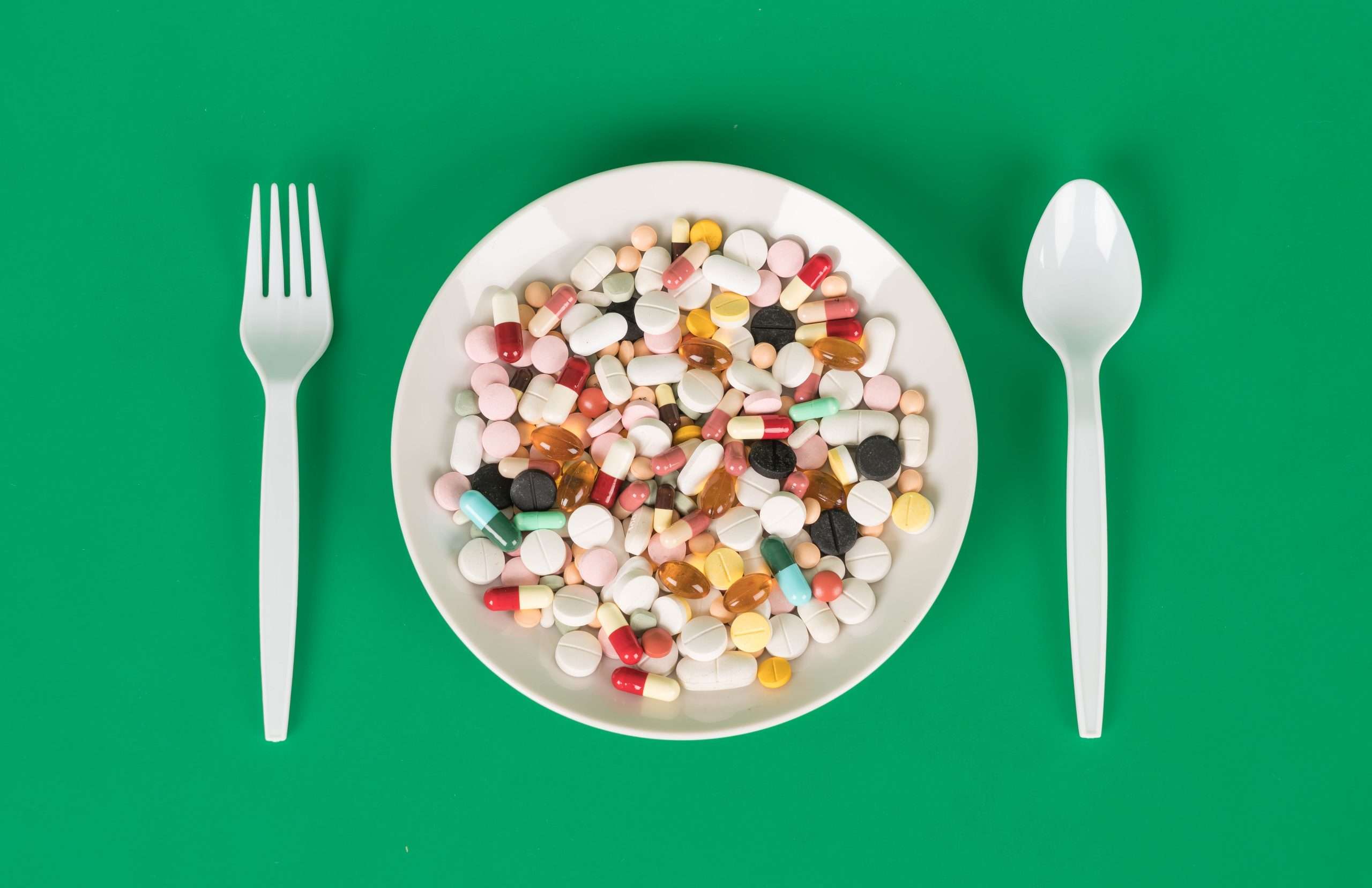Iron: An Essential Component of the Body
Iron is a vital mineral in the body. It is stored in the liver, spleen, muscle tissue, and bone marrow as ferritin. Historically, iron has been emphasized in folk medicine for centuries. The Ancient Egyptians used iron powder to prevent non-scarring alopecia. The Ancient Greeks used wine and iron as a cure for male impotency. During the 17th century, English physician Thomas Sydenham advocated for iron to be used as a treatment for chlorosis, otherwise known as the “green sickness” or “virgin’s disease”. The condition affected adolescent females and caused symptoms such as pale complexion, exhaustion, and loss of appetite. Today, it is understood that the condition is attributed to iron deficiency.
Iron deficiency is extremely common worldwide and is the primary cause of anemia. 1.6 billion people across the globe are anemic, while 2 billion people have nutritional iron deficiency. Anemia is a blood condition where the body is not producing the right amount of healthy red blood cells. Without red blood cells, the body cannot transport enough oxygen to the organs, tissues, and other cells. This is why those with anemia often feel dizzy or weak, especially when they stand up rapidly.
Iron deficiency anemia can be caused by many reasons including blood loss, maternal and pregnancy-related, malaria, hookworm, and most commonly through diet and malabsorption of iron.
Diet and Malabsorption of Iron
When the average diet cannot maintain iron availability, an individual may need to begin taking supplementary dietary iron. Iron supplements are available in various forms, including capsules, tablets, and liquid forms. The supplements work by increasing the amount of iron in the body and help increase red blood cell production. This helps improve the amount of oxygen in the blood and alleviates symptoms of anemia. Iron from food is absorbed by the intestines and separated into two forms: heme and nonheme iron. Heme iron makes up 95% of usable iron in the body. It mainly comes from red meats, poultry, and fish. High levels of heme iron are associated with a higher risk of cancers such as pancreatic cancer and lung cancer. While heme iron is well absorbed by the body, non heme iron is not. Non-heme iron comes from plants like whole grains, seeds, leafy greens, and nuts. Vitamin C or ascorbic acid is great at improving the amount of dietary nonheme iron and heme iron absorption in the body.
Iron is a major component of hemoglobin, a protein in the red blood cells that takes oxygen from the lungs and carries it to all parts of the body. Iron also makes myoglobin, a heme protein that takes oxygen and stores it in the muscle tissues. Iron is stored in ferritin, a protein that then carries the iron to cells when needed. Ferritin is a valuable clinical tool when looking at iron deficiency as ferritin reflects how much available iron is being stored in the body. Your doctors may order a ferritin blood test to measure the amount of blood protein available to help store iron. The test will show whether there is too little or too much iron being stored in the body. Normal ferritin levels will range from 24 to 336 μg/L in men and 11 to 307 μg/L in women. Lower-than-normal results are a significant indicator of iron deficiency and anemia. Finally, iron is also important for healthy brain development, and growth in children.
Symptoms of Iron Deficiency Anemia:
- Abnormal paleness or the skin lacking color
- Irritability
- Fatigue or tiring easily
- Increased heart rate (tachycardia)
- Sore or swollen tongue
- Enlarged spleen
- Pica (a condition where the patient has the desire to eat unusual substances like dirt, sand, or ice)
The Relationship Between the Thyroid and Iron
Anemia and thyroid dysfunction often occur simultaneously in patients. Iron deficiency anemia impairs the thyroid gland’s metabolism by reducing the amount of oxygen in the blood. The thyroid gland produces two hormones, thyroxine (T4) and triiodothyronine (T3), which are responsible for regulating metabolism. One study found that with iron deficiency, the amount of T4 and T3 in the plasma of the blood significantly decreased. Thyroid hormones play an important role in hematopoiesis. This is the process of forming red blood cells and their components.
Hypothyroidism
Anemia is common in individuals with hypothyroidism, where the thyroid gland is not producing enough thyroid hormones and the metabolism slows down. Thyroid hormones like T4 and T3 stimulate the production of substances needed for producing red blood cells. With anemia, not enough oxygen is being shipped through the blood which reduces thyroid hormone production. This, in turn, reduces the production of red blood cell materials. Anemia and hypothyroidism can cause bone marrow depression, comorbid diseases, and deficiencies in folate, vitamin B12, and iron. In women with decreased thyroid-stimulating hormone (TSH), hemoglobin concentrations were also much lower than in those with thyroid dysfunction. Hypothyroid patients also had a reduced number of erythroid cells, cells in the bone marrow that help produce red blood cells, and decreased erythropoietin in the plasma. Erythropoietin is produced in the kidneys, liver, spleen, and bone marrow, and the body needs it to stimulate red blood cell production. Red blood cell distribution width (RDW) where red blood cells are of unequal widths is also a sign of iron deficiency anemia. The level of thyroxine in the blood and the RDW are negatively correlated. This means that when RDW increases and there is a variety in sizes of red blood cells, the level of thyroxine in the blood decreases. Furthermore, RDW was significantly higher in patients with hypothyroidism.
A study on 17 children and adolescents diagnosed with hypothyroidism found that 65% had anemia. 10 of the patients were found to have delays in bone growth and had heights below the third percentile. Another study on patients with subclinical hypothyroid and overt hypothyroid reported that 39% of individuals with subclinical hypothyroidism also had anemia, while 43% of overt hypothyroid patients had anemia. Similar trends have also been seen in congenital hypothyroidism. Congenital hypothyroidism is a thyroid hormone deficiency that begins right at birth. In newborns, if the condition is not diagnosed quickly, there is a high risk of neurological deficits. Fifty infants with congenital hypothyroidism were screened for anemia, and it was found that the blood condition was frequently observed in patients and would persist even after thyroid replacement treatment.
Hyperthyroidism
In hyperthyroidism, where the thyroid glands are producing too many thyroid hormones, altered iron metabolism and oxidative stress can contribute to anemia. A study on patients with Graves hyperthyroidism found that 33% of patients had anemia. Hyperthyroidism and iron deficiency anemia can be linked because hyperthyroidism causes a rise in ferritin and red blood cell production, leading to a higher demand for iron. If there is not enough iron available, it can contribute to iron deficiency anemia. Focusing on Graves’ hyperthyroidism, the condition interferes with iron metabolism and elevates the levels of ferritin in the body. Iron metabolism is crucial as high iron concentrations in the blood are toxic to the body. Iron metabolism can be tested with a transferrin level test. Transferrin is a glycoprotein in the blood plasma that plays a major role in iron metabolism and transferring iron from the blood to tissue. If transferrin is low, the body is absorbing too much iron and overloads the system. If transferrin is high, the individual is at higher risk of iron deficiency anemia.
Overall, thyroid hormones play an important role in metabolism and the production of red blood cells. With thyroid dysfunction in either hyperthyroidism or hypothyroidism, blood conditions such as anemia, erythrocytosis leukopenia, thrombocytopenia, and pancytopenia can occur.
How is Iron-Deficiency Anemia Diagnosed?
- Your doctor will order blood tests to check blood count, hemoglobin levels, blood iron levels, and ferritin levels.
- In healthy adults, iron should be 10 to 30 μmol/L. Anything less than 10 is considered iron-deficiency anemia.
- In healthy adults, ferritin should be 40 to 300 μg/L in men and 20 to 200 μg/L in women. Anything less than 10 is iron deficiency anemia.
- Your doctor may look at an ultrasound if they suspect excessive menstrual bleeding.
- A colonoscopy may be used to look for internal bleeding in the colon and rectum.
Iron Deficiency and Thyroid Medication
Patients with hypothyroidism and hyperthyroidism may rely on thyroid medication to maintain normal thyroid hormone levels. However, taking iron supplements can interfere with the absorption of thyroid medication in the body. A study recalled a case where a 29-year-old woman diagnosed with primary hypothyroidism was instructed to take iron supplements to aid with their pregnancy. This shows that individuals who are most at risk of iron supplements diminishing thyroid medication absorption are elderly patients, menstruating women, and pregnant women. The patient was told to take the iron supplements 4 to 6 hours after taking levothyroxine. However, the patient still developed high levels of TSH and low levels of thyroxine. This caused the patient to need higher doses of levothyroxine.
Intravenous Iron Therapy?
While oral iron supplements are what many doctors will turn to for treating iron deficiency anemia, some physicians also consider intravenous treatment for certain circumstances. In many iron-deficient conditions like anemia, taking oral iron can have adverse effects on the gastrointestinal tract or take too long to improve blood iron levels. Iron dextran was one of the first intravenous iron compounds developed for patients who could not tolerate oral iron. Clinicians were reluctant to use iron dextran as patients often experienced anaphylactic symptoms. Since then, more effective intravenous treatments have been developed. Intravenous treatment is primarily used for gastrointestinal adverse effects, patient nonadherence to iron deficiency treatment, poor absorption in the duodenum of the small intestine, inflammatory bowel disease (IBD), and chronic inflammation from oral iron supplements. It should be noted that thyroid disorders are associated with IBD with the thyroid often enlarging and releasing more free thyroxine. While clinicians take precautions when administering intravenous iron treatment, proper training, consistent monitoring, consultation with pharmacists, and appropriate drug dosages can potentially improve overall patient outcomes.
What should you NOT eat or drink while taking thyroxine?
Iron supplements, calcium, and other foods such as dairy and cruciferous vegetables like broccoli and cabbage can interfere with and reduce the absorption and effectiveness of levothyroxine and other thyroid medications in the gut. While patients like the pregnant 29-year-old from the previous study, are required to take levothyroxine on an empty stomach at least an hour before any dietary nutrient intake, there is still a risk of elevated levels of TSH. Levothyroxine is strongly recommended to be taken on an empty stomach. The amount of time one should take levothyroxine BEFORE a meal varies between 30 minutes to 1 hour (typical for morning intake before breakfast), while it varies between 3 to 4 hours AFTER a meal (typical for evening/bedtime intake after dinner). It is therefore strongly recommended to consult with your healthcare provider before taking any thyroid medication.
Managing thyroid medication and iron levels is a multifaceted approach that includes dietary changes, scheduled iron supplementation, and monitoring TSH levels and symptoms carefully. An alternative strategy for managing low iron levels when medication is only optional is to increase the intake of iron-rich foods such as beef, lamb, ham, poultry, fish, eggs, shrimp, and leafy green vegetables like spinach, kale, and chard. While iron supplements can be effective in treating iron deficiency, they can also cause side effects such as an upset stomach, nausea, and vomiting. As with any medication, you must consult with a healthcare professional before starting any supplements to ensure that it is safe and appropriate for your personal needs.
In conclusion, seeking help from a qualified healthcare provider before beginning any treatment is necessary for improving and maintaining your health. It ensures that you receive the correct diagnosis, appropriate medication and supplements, and proper monitoring of any side effects and symptoms.
Key Takeaways:
- Iron deficiency is extremely common worldwide and is the primary cause of anemia.
- Iron is a major component of hemoglobin, a protein in the red blood cells that takes oxygen from the lungs and carries it to all parts of the body. Iron also makes myoglobin, a heme protein that takes oxygen and stores it in the muscle tissues.
- Anemia is common in individuals with hypothyroidism, as thyroid hormones like T4 and T3 stimulate the production of substances needed for producing red blood cells.
- Anemia and hypothyroidism can cause bone marrow depression, comorbid diseases, and deficiencies in folate, vitamin B12.
- In hyperthyroidism, where the thyroid glands are producing too many thyroid hormones, altered iron metabolism and oxidative stress can contribute to anemia.
- Iron supplements, calcium, and other foods can interfere with and reduce the absorption and effectiveness of levothyroxine and other thyroid medications in the gut.
- Taking levothyroxine with iron supplements or food can lead to elevated levels of TSH and low levels of thyroxine which will then require a higher levothyroxine dosage.




